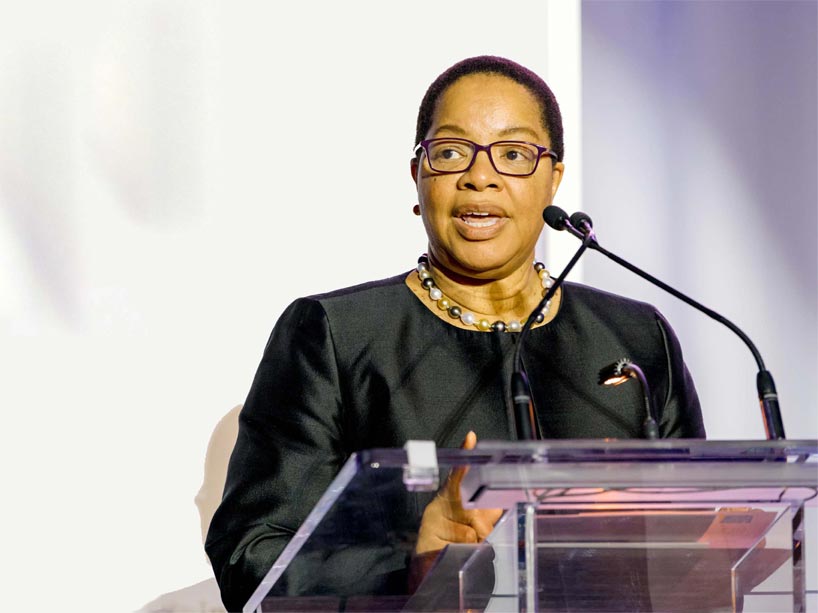Why we need to adopt an intersectional approach in a global pandemic

Vice-President, Equity and Community Inclusion Denise O’Neil Green addresses the need for intersectionality during the pandemic.
It has been just over six weeks since we began learning about and adhering to social distancing, or physical distancing as it is now known. For those of us who have the means to learn, study, work and even play from home, these are indeed unprecedented and challenging times. The disruption to our daily routines and fear of the unknown, including this new virus, has brought a considerable amount of anxiety, stress and worry. For those of us deemed as essential workers, the demands are even more intense.
I am addressing you not only as vice-president, equity and community inclusion, but as a fellow member of the Ryerson community. What we know from our Diversity Self-ID data is that Ryerson is a richly diverse community. We have students, faculty and staff who are new to Canada, and some whose ancestors were the first peoples to inhabit these lands. Ryerson’s community includes people of all gender identities and expressions and all sexual orientations. It includes people with diverse religious and spiritual beliefs, racialized people from a variety of ethnic origins and cultural practices and who speak many different languages. Our community also includes students, faculty and staff who experience disability in a variety of ways.
The impacts of COVID-19 depend on who you are
The diversity of our community means that there is a range of ways in which individuals experience the world around us. And while the virus itself does not discriminate, the reality is that institutions, systems and processes do discriminate and have since their very inception. In fact, this current crisis has intensified the impacts of these barriers.
If you are struggling with limited financial resources, precarious housing, food insecurity, lack of access to secure and reliable WiFi, physical and mental health trauma and challenges (just to name a few), it may be incredibly difficult for you to follow the directive from public health agencies to stay home. It may be even more challenging to meet the demands of schooling, teaching, working and just getting through your day.
Now more than ever, we must adopt an intersectional approach
Keeping this context and diverse community in mind, I would like to build on President Lachemi’s recent message of solidarity and gratitude with a call to action.
I call on the Ryerson community to adopt an intersectional approach to understand the different ways we all move through the world. Intersectionality (coined by Kimberlé Crenshaw in 1989) (external link) recognizes that people have more than one identity and that these identities intersect and impact the way in which we access services, are received and the way we experience the world.
I encourage each and every Ryerson community member to uphold our values of equity, diversity and inclusion by taking tangible efforts and steps to include those at the margins who are being left behind. Not only are these individuals and communities at increased risk of becoming infected with COVID-19 but they may also be the most marginalized in the months ahead.
In particular, we must disrupt dominant narratives and denounce discrimination, racism and prejudice in all of its forms. In doing so, we can help stop the spread of misinformation, fear and xenophobia. We can also lead the charge to break down barriers that limit the inclusion of people with disabilities.
As President Lachemi also stated, ours is a community that has displayed an unparalleled sense of creativity, flexibility and resilience. These last few weeks have reinforced and reignited my belief that we all have the strength and opportunity to make a difference and to work towards the full inclusion of our fellow community members. It will require conscious awareness, deliberate intention and targeted actions, but I know we can achieve our goals together.
We’re here to support you
If you require support, coaching, advice or consultation on an equity, inclusion or human rights-related issue, the Office of the Vice-President, Equity and Community Inclusion (OVPECI) team is here for you. Learn more about our service areas and connect with us for support and guidance.
Thank you for the ways in which you are showing up and taking care of yourselves and your fellow Ryerson students, faculty and staff. I hope you are staying safe and healthy.
Denise O’Neil Green
Vice-President, Equity and Community Inclusion